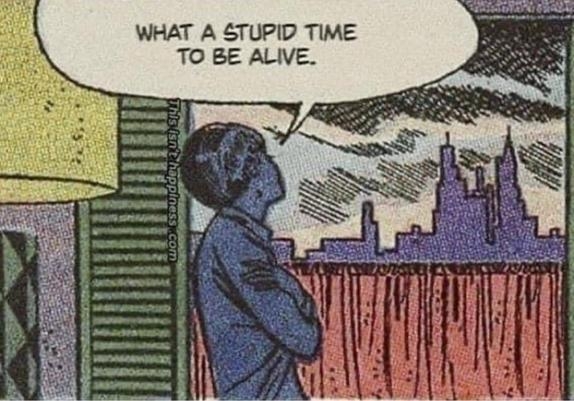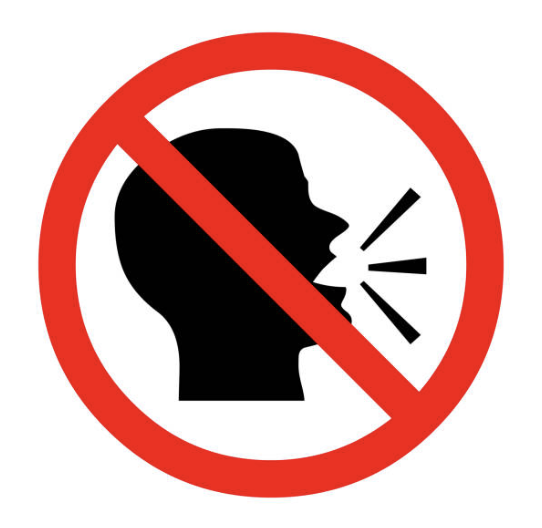I googled “Big Naturals”. Result number 16 was this:

Should’ve been number 1.
This actually got a chuckle out of me. Prob the first number related joke I’ve laughed at.
Gandalf’s large positive integers
Like that?
Oh wow. Do we have a lemmy community for that?
be the change you want to see!
Actually, those are not the same. Natural numbers include zero, positive integers do not. She shoud definately use ‘big naturals’.
Edit: although you could argue that it doesnt matter as 0 is arguably neither big nor large
Natural numbers only include zero if you define it so in the beginning of your book/paper/whatever. Otherwise it’s ambiguous and you should be ashamed of yourself.
Fair enough, as a computer scientist I got tought to use the Neumann definition, which includes zero, unless stated differently by the author. But for general mathematics, I guess it’s used both ways.
Natural numbers include zero
That is a divisive opinion and not actually a fact
Yeah, it’s a matter of convention rather than opinion really, but among US academia the convention is to exclude 0 from the naturals. I think in France they include it.
positive interers with addition are not a monoid though, since the identity element of addition is 0
They’re not a complete algebraically closed field either, but I don’t see you advocating for including e - i in the natural numbers!
yeah, this is kinda weak argument
Not sure if you’re conceding the monoid part or not.
We can agree that the natural numbers are a semigroup, I think, which should make us all happy.
Okay
I hope that explains everything
Yeah I find it easier to just accept the terminology of natural numbers and whole numbers so we have simple names for both.
Big naturals in fact include two zeroes:
(o ) ( o)
Spaces and parens added for clarity
(0 ) ( 0)
You can’t fool me.(o Y o) solve for Y
When enclosed in parentheses I believe the correct term is “bolt-ons”
Depends on how you draw it.
Strictly positive numbers, Z0+, don’t include zero. Positive numbers aka naturals, Z+ = N, do.
Edit: this is what I’ve learned at school, but according to wikipedia the definitions of these vary quite a bit
Natural numbers include zero
Only if you’re French or a computer scientist or something! No one else counts from zero.
There’s nothing natural about zero. The famously organized and inventive Roman Empire did fine without it and it wasn’t a popular concept in Europe until the early thirteenth century.
If zero were natural like 1, 2, 3, 4, then all cultures would have counted from zero, but they absolutely did not.
american education system moment?
I think round the world, children and adults start counting from 1. It’s only natural!
I think about this in terms can I have of something (indivisible), and sure enough I can have 0 apples (yeah, yeah, divisible), bruises, grains of sand in my pocket
I think you’re trying to explain to me what zero means while I’m trying to explain that it’s not where numbers numbers start of from. It’s where array offsets start (but making humans make that distinction instead of compilers is on obvious own goal for language designers who weren’t intending to make off by one errors more frequent). It’s where set theory starts, but it’s absolutely not where counting starts, and number starts with counting. It’s not a natural number.
Large nonnegative numbers*
If they’re big the zero is skipped anyway
Just write it bigger.
Thanks for the comment - - I will fight for recognizing zero as a natural number
Zero indexed gang, yes
If your array doesn’t start at zero I’m not sure we can be friends.
In mathematics, the natural numbers are the numbers 0, 1, 2, 3, and so on, possibly excluding 0.[1] Some start counting with 0, defining the natural numbers as the non-negative integers 0, 1, 2, 3, …, while others start with 1, defining them as the positive integers 1, 2, 3, … .[a] Some authors acknowledge both definitions whenever convenient.[2] Sometimes, the whole numbers are the natural numbers as well as zero. In other cases, the whole numbers refer to all of the integers, including negative integers.[3] The counting numbers are another term for the natural numbers, particularly in primary education, and are ambiguous as well although typically start at 1.
So it is undefined behavior, great
Yes. Some mathematicians think that 0 is natural, others don’t. So “natural number” is ambiguous.
In order to avoid ambiguity, instead of using fancy “N”, you should use fancy “N0” to refer to {0,1,2,3,4,…} and “positive integers” to refer to {1,2,3,4,…}.
sure, but a large one?
Also in an aqueous environment, they become floating point values.
big badonka-donkadonks
Don’t get me started on the unnatural and supernatural numbers.
Sound made up, like imaginary numbers.
I mean all numbers are made up when you think about it.
Also unrelated but natural numbers are closed under multiplication (by pure coincidence) while imaginary numbers are not.
This means natural numbers make worse examples when learning about sets.
Made me think of how everything is base 10, even octal or binary.
Why, would anyone at all think about something else?
/s
Big Naturals Are More Pronounced
ftfy
Natural Numbers ≠ Integers though.
In spite of that, I’m chuckling. Math can be funny sometimes 😂
Positive integers are (a subset of) natural numbers
Why a subset? They’re the same thing right? I guess it could be about the zero?
you answered your own question
Well what I learned in school was that zero was both positive and negative. I knew some people consider the natural numbers don’t include zero, but I didn’t know for some zero isn’t even positive.
it is neither positive nor negative
I knew a physicist who considered 0 negative if she arrived at 0 coming from negative source numbers and positive if coming from positive sources.
Something something sampling rate
Some places (like France) talk about positive and strictly positive, others (like England) about non-negative and positive
Identical sets are considered subsets of each other.
True
But I don’t think they would have said “a subset of” if the sets were identical.
I don’t care if they’re big, as long as they’re real
I don’t care if they’re real, as long as I can manipulate them
They’re Real, and they’re fantastic.
Imaginary ones are useful too.
You like big figures and you cannot lie?
I like naturals, but more than a mouthful is kind of a waste. ;-)
“Anything bigger than a handful, you’re risking a sprained tung”
That’s true OP, “big naturals” are indeed very pronounced.
I just say “big’uns”












